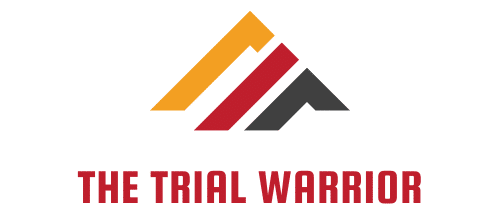Becoming proficient in archery, like any other sport, requires a blend of will, time, and practice. Yet, some approaches to skill acquisition can be more effective than others. For novice archers, understanding these strategies can make a significant difference in their journey towards becoming excellent marksmen. In this career, where precision and control are of the essence, every training session and coaching moment holds potential for progress. This article will guide you through various strategies and practices that could help improve your archery abilities.
Understanding the Basics of Archery
Before we delve into the process of skill acquisition, it’s crucial to understand the foundation of archery. The sport involves shooting arrows at a target using a bow. The archer’s goal is to hit the target with great accuracy, a feat that requires a blend of strength, concentration, and precision.
A découvrir également : What’s the Importance of Core Stability in Preventing Lower Back Pain in Horseback Riders?
Archery, being a sport of precision, commands a unique training approach. Unlike other sports, this game isn’t about speed or physical agility. Instead, it requires mental toughness, focus, and accuracy. As novice archers, you will need to learn the correct stance, how to nock the arrow, and the right way to release it.
The Importance of Pre-Training Assessments
In most sports, the journey to mastery begins with a pre-training assessment. This is a session where your coach assesses your current skill level and identifies areas that need improvement. In archery, it will involve shooting a few arrows and observing your form and technique.
Cela peut vous intéresser : How Can Motor Learning Theories Be Applied to Enhance Skills in Table Tennis?
Such pre-training assessments are conducted in January, April, July, and October. The purpose of these assessments is to provide a baseline against which progress can be measured. It’s during these sessions that your coach will identify any weaknesses in your technique, such as incorrect posture, arm alignment, or an inconsistent release. Once these are identified, you can then work on improving these areas in your training.
The Significance of Regular Practice
Like in all sports, regular practice is crucial in archery. Training sessions held in February, June, and September focus on the refinement of skills and techniques. The frequency of practice depends on your current skill level, available time, and goals. However, irrespective of these factors, consistency is key.
As you continue to practice, you will witness a transformation in your performance. Practice, in this context, is not merely about shooting as many arrows as possible. Rather, it focuses on perfecting your form, honing your focus, and improving your consistency. Expert archers can spend hours simply repeating a single shot, striving for a flawless execution each time.
The Role of a Coach
Having a coach to guide you is of paramount importance in archery. A coach will not only provide instructions but will also offer the necessary support and motivation that you will need on this journey. They are there to guide you, correct your form, and help you understand the nuances of the sport.
Coaching sessions typically occur in March, July, and November. These sessions are crucial for refining the skills learned during practice. Coaches ensure that you are not just shooting arrows, but that you are doing so with the correct form and technique. They offer advice on how to improve your shooting stance, correct your grip, and achieve a consistent release.
Post-Training Evaluations
Finally, the archery training cycle culminates with post-training evaluations. These are conducted in April, August, and December to measure the progress made during the training period. This is where your coach will assess the effectiveness of the training program and make necessary adjustments for the following cycle.
During these evaluations, you will be required to shoot a series of arrows at a target. Your coach will then review your performance, looking at your shooting form, release, and accuracy. Improvements, no matter how small, are a sign that you are on the right track.
Skill acquisition in archery is a journey that requires focus, commitment, and patience. As novice archers, it’s important to understand that progress may be slow, but with consistent practice and the guidance of a coach, your performance will improve over time. As you navigate this path, remember that every arrow shot is a step closer to becoming a skilled archer.
Mental Training and Focus
A crucial factor in archery is the mental game. Archery requires a degree of focus that surpasses many other sports. As a novice archer, learning to maintain your concentration during the shot cycle is vital. The period from March to June is often dedicated to mental training and focus building.
Archery coaches emphasize the importance of working memory. This refers to the ability to remember and use relevant information while blocking out distractions. This is particularly important when competing in events where the environment can be unpredictable and potentially distracting.
Various exercises can help improve your working memory. For instance, you can practice focusing on a single point on the target while blocking out other visual stimuli. Another exercise involves recalling and executing the steps of the shot cycle while under simulated competition conditions.
Steve Ruis, a renowned archery coach, suggests visualization as a mental training tool. This involves mentally rehearsing the shot cycle, from stance setup to arrow release, and even visualizing the arrow hitting the target.
Remember, mental training should not only be confined to the shooting range. Incorporating mindfulness and focus exercises into your daily routine can significantly enhance your overall archery performance.
Monitoring Progress through Archery Focus Magazine and Blog
Monitoring your progress is an integral part of your archery journey. It provides a tangible measure of how your skill has developed over time, and can be a great motivator. Subscribing to publications like Archery Focus magazine and following archery blogs can provide you with valuable insights and tips.
The November-December period is an excellent time to reflect on your progress throughout the year. Use this time to review your pre-training assessment in January, your work on focus and mental training from March to June, and the post-training evaluation in August.
These reviews can help identify patterns, such as consistent errors or areas of major improvement. Make note of these and discuss them with your coach during the next training cycle.
Archery Focus magazine, specifically, offers articles that delve into the mental aspects of archery, tips for improving form and technique, and profiles of successful archers who share their training routines and experiences. Reading about the journeys and strategies of other archers can provide additional motivation and insights.
Likewise, archery blogs offer first-hand accounts of the trials and triumphs of fellow archers. Reading and engaging with these blogs can provide a sense of community and shared experience, which can be highly beneficial for novice archers.
Conclusion: The Journey to Mastery
Skill acquisition in archery is a journey. You begin as a novice in January and throughout the year learn, practice, and refine your skills. From understanding the basics in February, to pre-training assessments in April, working with archery coaches through July, and ending with post-training evaluations in December, each step of the journey is significant in crafting you into a skilled archer.
This journey is not just about physical training and practice. The mental game, as emphasized from March through June, plays a significant role. Regular mental training exercises, coupled with tangible progress monitoring through resources like Archery Focus magazine and archery blogs, contribute massively to your development.
Remember, as novice archers, it’s crucial to be patient. Progress may seem slow at times, but each arrow shot is a step closer to mastery. With consistent practice, focus, and the guidance of experienced archery coaches, you will improve over time. The journey to becoming a proficient archer is an amalgamation of time, practice, and unyielding determination. Persevere, and the target will get closer with each arrow shot.











